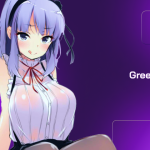
Midjourney artificial intelligence (AI) artist Jason M. Allen is crying for legal protection as the U.S. Copyright Office denied the copyright claim to his Colorado art competition-winning “Théâtre D’opéra Spatial” work. Ironically, behind the framework of his piece and his legal endeavor, many original creators remain unprotected against the unauthorized use of their art by AI systems.
Jason M. Allen’s Case
Allen, an executive at a tabletop gaming startup, gloated headlines in 2022 when his AI-generated artwork won first place at the Colorado State Fair’s digital art competition. The piece he created using the AI tool Midjourney, which itself has been facing a class-action lawsuit that has been filed against it and other AI art platforms.
His work has incited criticisms among traditional artists, many of whom argued that AI-generated art undermines human creativity. Allen refused to flinch against the backlash and defended their work, famously declaring, “Art is dead, dude. It’s over. A.I. won. Humans lost.”
Now, two years later, Allen finds himself on the other side of the argument. After the U.S. Copyright Office denied his attempt to copyright “Théâtre D’opéra Spatial” in 2023, Allen claims that unauthorized sellers are profiting off his work.
“There are people who have literally posted my work for sale in print or as crypto and are trying to sell it on OpenSea or Etsy,” Allen said in an interview with KUSA News. He argues that the inability to copyright his artwork has made it impossible to protect his intellectual property, leading to what he calls significant “price erosion.”
“I have experienced price erosion… which has impacted my ability to charge industry-standard licensing fees,” Allen told Colorado Public Radio. He estimates the losses to be in the millions as unauthorized sellers undercut his prices or claim ownership of his AI-generated work.
Allen’s team pushed back with an appeal, with arguments stating that Allen’s creative input and post-processing work—done with Photoshop and Gigapixel AI—qualifies him for copyright protection. “In our case, Jason had an extensive dialogue with the AI tool, Midjourney, to create his work, and we listed him as the author,” said his lawyer, Tamara Pester.
However, the U.S. Copyright Office has so far rejected such claims, maintaining that artwork containing significant AI-generated elements cannot be copyrighted due to the lack of human authorship.
The Plight of Original Artists
“The refusal of the U.S. Copyright Office to recognize human authorship in AI-assisted creations highlights a critical issue in modern intellectual property law,” Pester claimed.
However, the irony of Allen’s situation lies in the fact that while he is fighting for rights to his AI-generated piece, many original artists are left without protection at all.
The emergence of generative AI tools, pushed by behemoth tech companies like Google, OpenAI, and Midjourney, has raised significant concerns among artists regarding the protection of their original works. Artists report numerous instances where AI platforms have appropriated their works.
The lack of clear legal frameworks means that many original artists find themselves without recourse as their styles and creations are reproduced and sold without acknowledgment or compensation. If Allen succeeds in protecting his work, where does that leave original artists whose works have influenced these algorithms?
The inadequacies of current copyright law are becoming increasingly apparent as AI-generated art proliferates. The U.S. Copyright Office’s refusal to grant Allen copyright protection serves as a warning signal to all artists looking to navigate the gen-AI terrain.




















